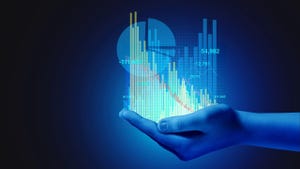Can Open Source Software Save Democracy?Can Open Source Software Save Democracy?
Voting machines and their foibles were catapulted to the top of public consciousness during the 2000 Presidential election, but have gone largely unnoticed in subsequent elections, which is a good thing. The possibility that a widespread glitch could affect a close national election, and the potential for this to undermine democracy, cannot be overstated.

Voting machines and their foibles were catapulted to the top of public consciousness during the 2000 Presidential election, but have gone largely unnoticed in subsequent elections, which is a good thing. The possibility that a widespread glitch could affect a close national election, and the potential for this to undermine democracy, cannot be overstated.But voting machines -- particularly the electronic voting machines that local election officials have started putting in place in the wake of the 2000 election with funding from the newly-created Elections Assistance Commission (EAC) -- have been responsible for a number of issues that, if they become more frequent, could fatally undermine Americans' confidence in election outcomes.
Having followed this issue rather closely since 2006, the one thing I've learned is that there are no easy answers. Electronic voting machines have obvious advantages over lever-based machines, but they can also be manipulated. Savvy voters can hit a reset button on Sequoia voting machines that allows them to vote multiple times; determined political operatives could use the wireless capabilities of some machines to infect them with viruses that can swap votes -- and thus change the outcome in districts they know would go against their candidate; and entirely paperless machines provide no audit trail in case of a recount.
But the solutions aren't necessarily obvious: only electronic voting machines are truly accessible to all voters, technicians do need reset buttons, wireless features are needed to report results in a timely manner, and a paper audit trail doesn't ensure that votes are counted properly unless you can determine which (the electronic or paper) reflects actual voter intent.
The problems are compounded because there's little profit margin in voting machines (which are paid for by cash-strapped local governments) and thus little incentive for voting machine vendors to invest a great deal in R&D. While two leading vendors, Diebold (before it spun off its voting machine subsidiary) and Sequoia, have been attacked for supposed political motives underlying the problems with their machines, the fact is that incompetence and poor communications, rather than nefarious intentions, are at the root of their problems.
So it's great news that Lotus 1-2-3- founder Mitch Kapor has just released the country's first open source voting system software, and even better that major corporations including IBM and Oracle, have offered to contribute code.
I have a lot of sympathy for those who are suspicious of electronic voting machines because of how susceptible they are to manipulation, but that's because the for-profit vendors simply never cared enough about the quality of the machines they were selling election officials. It didn't help that the EAC was extremely defensive about its pro-vendor guidelines, even though it ignored the recommendations it solicited from security experts like Bruce Schneier, Ron Rivest and others.
But voting software based open source code is an entirely different story, because it will allow any vendor to sell electronic voting machines that meet Federal guidelines for accessibility and security while reassuring the American public that their votes are really being counted.
Back in 2006, Deforest Soaries, the first chairman of the EAC (nominated by George W. Bush), told me the idea that local jurisdictions should decide what equipment to use for federal elections is absurd.
We are still functioning as a country on a model that was created in the 18th century. [But] in the 18th century, blacks could not vote, women could not vote, poor people who didn't own property could not vote; in the 18th century, you couldn't wake up in the morning and vote in Boston and fly to New York and vote in the afternoon and fly to Florida and vote in the evening... None of that was true in the 18th century, so to hold on passionately to this 18th century states' rights model, when today we've got mobility, we've got technology, we've got diversity that we didn't have in the 18th century, is absolutely insanity.
Fortunately, voting machines have become a bipartisan issue now that it's not just Democrats who are out of power and complaining about potential fraud. But while it's reassuring to see that a software-based solution is on the horizon, we still have to overcome the ignorance of many election officials and the difficulty of getting any kind of change at a local level.
I guess that's where we all come in as citizens.
Given the current climate of distrust, and the thinly-disguised threats of insurrection we witnessed this summer, it's not too far-fetched to imagine how quickly a botched election could degenerate into real civil unrest.
About the Author
You May Also Like




